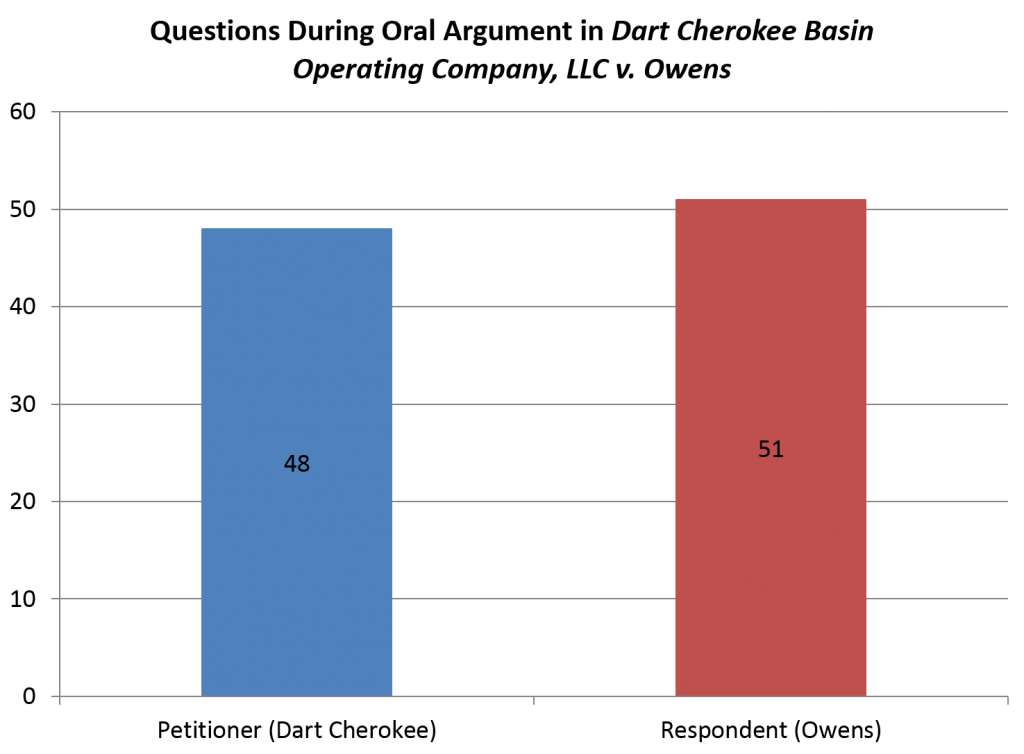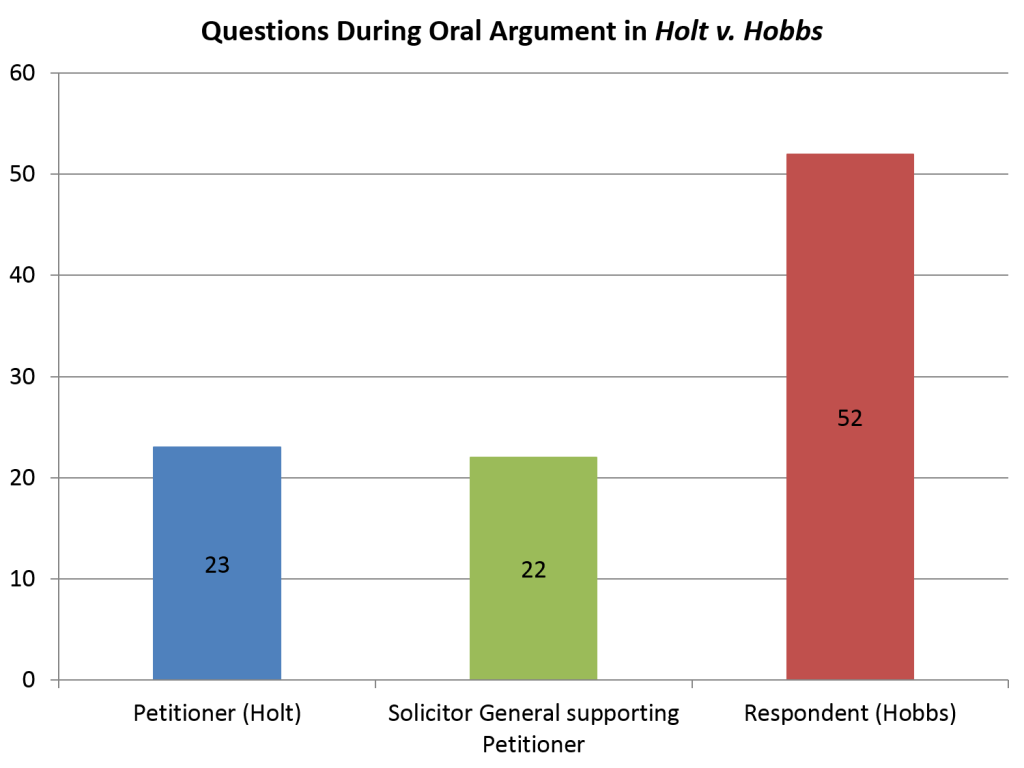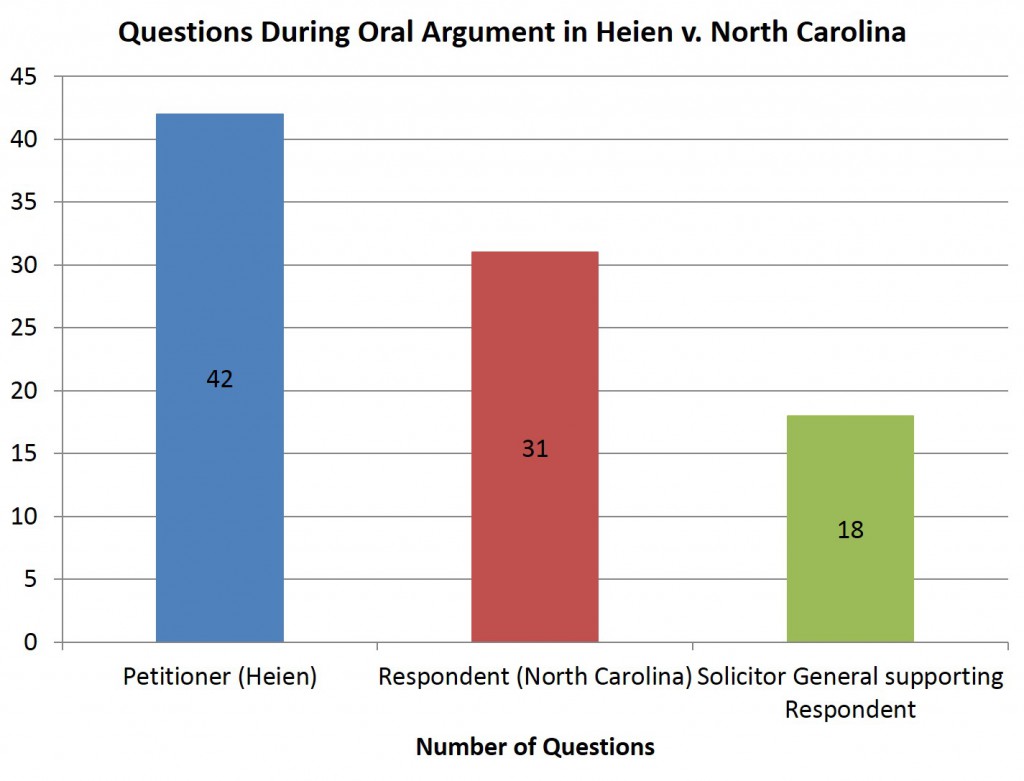Tomorrow the Supreme Court will hear oral arguments in an intriguing religious freedom case brought by Gregory Holt.
Holt is in an Arkansas prison, serving a life sentence for burglary and domestic battery. While in prison, Holt converted to Islam, took the name Abdul Maalik Muhammad, and, in accordance with his religious beliefs, sought to grow a beard. Arkansas prison regulations forbid facial hair other than a mustache. By refusing to allow him to grow a half-inch beard, Holt argues, prison authorities violate his rights under a federal law designed to protect religious exercise for prisoners. Arkansas counters that their policy is designed to prevent inmates from hiding contraband and to protect security. The courts, Arkansas argues, should defer to the judgment of the state’s prison officials.
Two factors make this case make particularly noteworthy. First, Holt wrote, by hand, his own appeal to the Supreme Court. He filed his petition “in forma pauperis,” an often used (particularly by prisoners) but almost never successful path to Supreme Court review that allows impoverished individuals to submit an appeal without paying the standard filing fees.
(Most famously, Clarence Gideon wrote his own in forma pauperis petition from a Florida prison, setting in motion events that led to the landmark 1963 Court ruling in Gideon v. Wainwright, which held that states are required to provide a lawyer for felony defendants who are unable to pay for their own lawyer.)
In fourteen painstakingly careful, handwritten pages, Holt argued why the Supreme Court should take his case. He raised religious freedom claims under both federal law and the First Amendment. The refusal of Arkansas prison authorities to grant religious exemptions to their no-beard policy is “intolerably oppressive and force[s] inmates to either obey their religious beliefs and face disciplinary action on the one hand or violate their beliefs in order to acquiesce with the grooming policy.” Holt noted that federal and other state prison policies achieve the same security goals without such a restrictive grooming policy. He also pointed out that Arkansas allows prisoners with “certain dermatological conditions” to grow a quarter inch beard, and therefore “it is not too far of a stretch to allow 1/2 inch beards for religious purposes.”
Holt concluded his petition by condemning Arkansas prison officials for being particularly restrictive toward the practice of Islam by inmates. According to Holt, his case raises “a matter of grave importance, pitting the right of Muslim inmates against a system that is hostile to these views.” He noted that “There are no group worship services, sajadahs (prayer rugs) are not allowed, there is extremely limited access to an Islamic spiritual advisor constituting no real meaningful access, Islamic publications are limited and Islamic catalogs are classified as books that, should they exceed the 10 book total limit, are subject to confiscation and there are no alternatives to religious instruction.” Growing a beard, Holt suggested, would provide “a suitable alternative form of religious expression.”
When the Supreme Court agreed to hear his case, it assigned him an attorney. In this case, Holt was assigned Douglas Laycock, a professor at the University of Virginia and one of the country’s leading religious rights lawyers (he appeared before the Court last term in Town of Greece v. Galloway).
The second intriguing element of this case is that it brings to the Supreme Court a religious liberty claim with powerful echoes of last term’s controversial Hobby Lobby decision.
When it accepted his case for review, the Supreme Court also narrowed the scope of Holt’s appeal. The Court will not consider his First Amendment claim. The justices will limit their review to his statutory claim, which was based on the Religious Land Use and Institutionalized Persons Act (RLUIPA), a law Congress passed in 2000. RLUIPA prohibits government policies that “impose[] a substantial burden on the religious exercise of a person residing in or confined to an institution,” unless the government can show that the policy is the least restrictive way of advancing a “compelling governmental interest.”
For followers of the Supreme Court, this legal language should sound familiar: it is the exact same test the Court applied in its controversial Hobby Lobby decision from last term. Both the federal law that Hobby Lobby successfully used to challenge the Affordable Care Act’s contraception mandate (the Religious Freedom Restoration Act) and the federal law under which Holt seeks protection were congressional responses to a 1990 Supreme Court decision that made free exercise claims more difficult to win under the First Amendment.
One key difference this time around, however, is that Holt has the federal government on his side. The Justice Department submitted a brief in the case supporting Holt.



